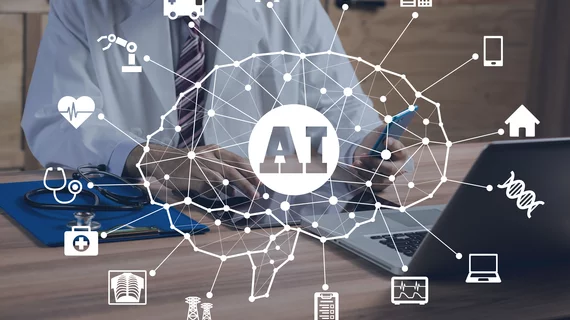AI can help non-radiologists diagnose pediatric elbow fractures
A team of California researchers used a deep convolutional neural network (DCNN) to accurately diagnose traumatic pediatric elbow joint diffusion, according to an Oct. 9 study published in the American Journal of Roentgenology.
“Evidence suggests that radiographic diagnosis of elbow joint effusion and acute elbow fracture is challenging for non-radiologists and is commonly missed,” wrote Joseph R. England, MD, of the USC Keck School of Medicine in Los Angeles, and colleagues. Coupled with the fact that elbow x-rays are most commonly read first by non-radiologists, authors argued an “accurate automated diagnosis using a computer vision algorithm may be of practical value.”
The DCNN was trained on 901 lateral elbow x-rays from 882 pediatric patients who showed in the emergency department with upper extremity trauma. Those images were divided into a training set of 657 images, a 115 image validation set and an independent test set of 129 images.
England and colleagues reported the trained DCNN model achieved an “almost perfect” agreement with the fifth year postgraduate pediatric emergency medicine fellow. On the validation set, the model scored a ROC AUC of .985, and a .943 on the test dataset. On that same test set, the artificial intelligence (AI) method achieved a .909 sensitivity, .906 specificity and accuracy of .907.
The team determined their algorithm could help inexperienced acute care providers with no specific pediatric training, including inexperienced non-radiologist clinicians. Additionally, the DCNN could aid radiology workflow management by “flagging” potentially positive cases for quicker reporting, England et al. added.
Overall, the researchers admitted their training set was smaller than most deep learning models, but suggested their method, if trained on larger datasets, could produce a more robust AI platform.
“This preliminary investigation shows that a DCNN model can achieve equal performance to a non-radiologist pediatric emergency medicine clinician in the diagnosis of traumatic pediatric elbow joint effusion, even when trained on a limited dataset,” the authors concluded. “Further work developing a larger training dataset may result in even better performance.”

